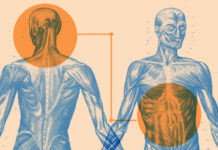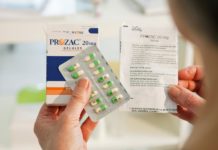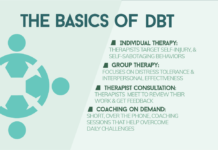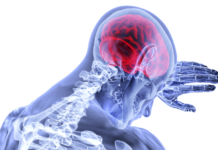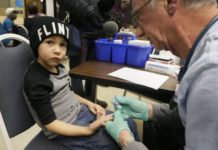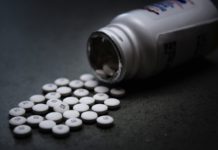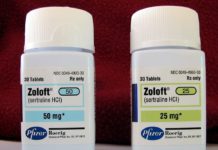The Answers in the Attic: A Mother-Daughter Story of Overmedication and Recovery
In 1959, my mother suffered what people referred to as a nervous breakdown after my sister’s birth. I puzzled over why Mom never recovered, until I found Dad’s collection of medical records in my sister’s attic. How could anyone give a nursing mother with three small children so many drugs in such a short period of time?
Antidepressant Use Linked to Longer, More Frequent Psychiatric Rehospitalization
New study finds that antidepressants may negatively impact recovery after psychiatric hospitalization.
The Impact of Regression to the Mean in Psychiatric Drug Studies
Could the statistical phenomenon of regression to the mean be responsible for the dramatic effects of placebo—as well as the supposed effectiveness of some psychiatric drugs?
More Psychological Supports Needed to Manage Antidepressant Discontinuation
Study reviews psychological interventions for antidepressant discontinuation.
Higher Minimum Wage May Result in Fewer Suicide Deaths, Study Finds
New research suggests that minimum wage laws provide financial security that may help prevent suicide.
The Effects of Antidepressant Exposure Across Generations: An Interview with Dr. Vance Trudeau
Dr. Vance Trudeau discusses his study's finding that antidepressants may have far-reaching, adverse effects that last up to three generations.
Ambushed by Antidepressants for 30 Years
They helped me function for a while, but the debilitating side effects of antidepressants held me prisoner. I'm still having a hard time understanding how this could have happened. It's been suggested to me by a therapist that what I'm going through now is another kind of PTSD: the ongoing trauma of realizing what antidepressants did to me for 30 years.
“Breakthrough” Treatment for Postpartum Depression: Game Changer or Misguided Magic Bullet?
Ultimately, the FDA Advisory Committee recommended approval of brexanolone by a 17-1 member vote. I was the only NO vote. I voted NO because as the sole Consumer Representative on the committee I didn’t believe the company had demonstrated that the potential benefits outweighed the potential for harm.
Does Active Placebo Response Explain Antidepressant Results?
A new study investigated whether participants guessing if they have an antidepressant or placebo affects response rates.
Green Space in Childhood May Protect Against Adult Mental Health Issues
A new study suggests proximity to green space as a child is linked to lower rates of mental health issues in adulthood.
Peer-Support Groups Were Right, Guidelines Were Wrong: Dr. Mark Horowitz on Tapering Off Antidepressants
In an interview with MIA, Dr. Horowitz discusses his recent article on why tapering off antidepressants can take months or even years.
It is Time to Abandon the Candidate-Gene Approach to Depression
The candidate-gene approach to depression goes unsupported and is likely based on bad science, new research finds.
Very Slow Tapering Best For Antidepressant Withdrawal
A new article in Lancet Psychiatry finds that slower tapering of SSRIs is better for preventing antidepressant withdrawal effects.
Psychology Needs New Concepts and Healing Models for Racial Trauma
Contemporary empirical research explores new ways to conceptualize and heal racial trauma through anticolonial and sociohistorical lenses.
New Evidence for Brain-Gut Link in Depression and Quality of Life
The first ever population-level study of the brain-gut connection in humans finds evidence for a link between gut bacteria and mental health.
Psychology Must Become a Sanctuary Discipline to Heal Racial Trauma
Researchers explore pathways of healing racial trauma in Latinx immigrant communities.
Psychological Interventions Can Help When Tapering Off Antidepressants
Meta-analysis of antidepressant tapering finds CBT and MBCT can aid in tapering, but limited studies met inclusion criteria.
Dialectical Behavior Therapy Reduces Self-Harm and Suicide Attempts
A new meta-analysis finds that DBT reduces self-harm, suicide attempts, and reduces the frequency of psychiatric crisis service utilization.
New Study Finds Limited Effectiveness for Antidepressants After Stroke
The researchers found that although antidepressants had a slight short-term effect on reducing the likelihood of depression diagnosis, there was no long-term improvement, nor any improvement in motor functioning.
Meta-Analysis Finds Asking About Suicidal Thoughts Does Not Predict Suicide
A recent meta-analysis finds that the association between reported suicidal ideation and later suicide is low.
More Evidence for the Lasting Psychological Impact of Lead Exposure in Childhood
New research points to numerous harmful effects of high-level lead exposure in childhood on adult mental health and personality characteristics.
Opioids May Cause Depression and Worsen Chronic Pain
“Converging lines of evidence now suggest that depression—a common comorbidity in the setting of chronic pain—may in some patients represent an unrecognized yet potentially reversible harm of opioid therapy.”
Researchers Challenge Interpretation of Antidepressant Meta-analysis
Researchers question the overstated results of a large antidepressant meta-analysis and point to cultural pressures to turn to these drugs for a quick fix.
Traumatic Immobility: Depression as a Stress Response
What if we don't have a depression epidemic, but a stress epidemic of traumatic proportions? What if we've been steered away from learning how our minds and bodies actually work, and into believing that our attempts to survive traumatic, threatening real-life circumstances are "symptoms of mental illness"?
Flexible Treatment Planning Improves Depression Outcomes in Youth
Researchers explore the effects of augmented treatment at various points in interpersonal psychotherapy for adolescents diagnosed with depression, highlighting previously unidentified critical decision points (i.e., relatively early in the treatment sequence).















